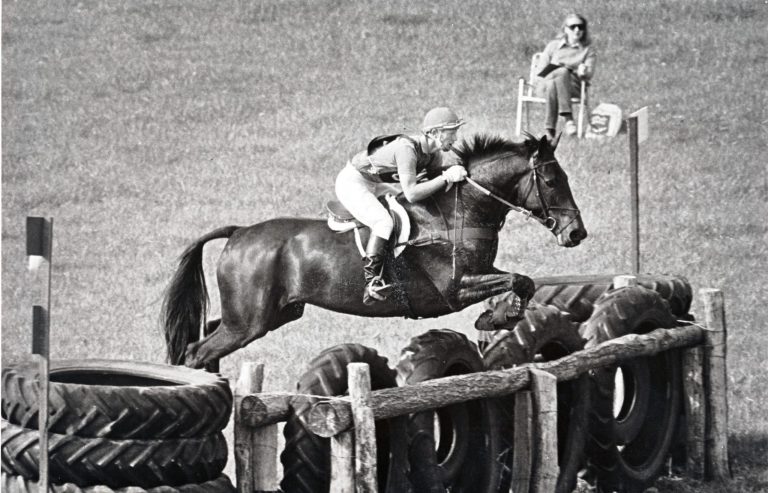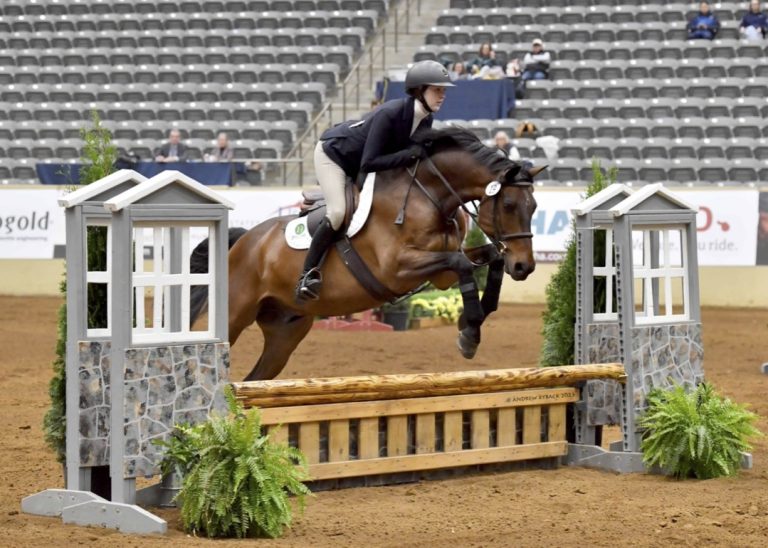 Credit: © Frank Sorge/arnd.nl Equine-industry careers can be found in the field of equine rehabilitation
Credit: © Frank Sorge/arnd.nl Equine-industry careers can be found in the field of equine rehabilitationThough it may be some time before you’ve got a high school diploma in hand, it’s possible you already know that you want to have a career that involves horses. Perhaps you aspire to make your living riding, training or coaching. Maybe you see yourself as the manager of a stable or breeding facility. Or you think you have what it takes to become a veterinary technician or equine practitioner.
Then again, you may just be starting to consider the sort of career you’d like to have. Narrowing your focus will require some soul-searching and a survey of your interests and abilities. The equine industry offers diverse employment opportunities. The workforce—which numbers 702,000 according to estimates provided by the American Horse Council in Washington, D.C.— comes from a wide variety of fields, including accounting, computer technology, architecture, communications, clothing design, marketing and sales—to name just a handful. So whatever your strengths and the specific line of work you choose, you’ll find it’s possible to combine professional expertise with equestrian experience for an occupation that stands apart from most others.
Knowledge is Power
The key to success in a career is learning as much as possible about the work you intend to do.
“Employers want to be sure that applicants have a solid, wellrounded education,” says Dr. Karin Bump, Ph.D., professor of equine business management at Cazenovia College in Cazenovia, New York. “They want employees who are dependable, can communicate effectively and have a strong work ethic.” That’s why the majority of high school graduates in America—66.2 percent in 2012, according to the U.S. Bureau of Labor Statistics—head to college for certificate programs or to earn a twoor four-year degree.
For those seeking to make a living in the equine industry, 196 schools in the United States offer courses related to horses. That number comes from the National Association of Equine Affiliated Academics, an organization founded in 2003 by Karin, who also serves as its director. NAEAA’s goal is to facilitate cooperation and information-sharing among colleges and universities that have established programs in the equine discipline—an umbrella term of sorts that refers to all types of coursework associated with horses.
“One of our struggles,” says Karin, “is that it’s still hard for people to figure out what the ‘equine discipline’ means.” That dilemma has been compounded, interestingly enough, by the increased appeal of horse-related higher education and a rapid growth of offerings over the past decade. Wide variation in the way schools report a program’s content can complicate the search for colleges that offer horseoriented studies, Karin says: “It does take extra homework to be able to find all the colleges that offer equine degrees.” But the process needn’t be overwhelming. There are several keywords that characterize the content of specific areas of equine study and plenty of resources to explore (See “The Search is On,” page 59). “Talk to people, Google-search in many different ways and feel free to contact the NAEAA [naeaa .com],” Karin says.
The Nuts & Bolts Of a Degree
In most cases, colleges and universities identify their horse-oriented majors as either “equine studies” or “equine science.” Generally speaking, the distinction is that a degree in equine studies prepares a student for a job in a profession such as riding, training, coaching, show management, communication or sales. One in equine science provides the educational framework for a career as say, a breeder, nutritionist, equine practitioner or veterinary technician (described by one university as “the nurses of veterinary medicine”).
Some schools tailor coursework to students’ special interests, and the degrees that they earn reflect a very specific area of study. For instance, Lake Erie College, in Painesville, Ohio, awards a bachelor of arts in equine studies with a concentration in either stud-farm management or therapeutic horsemanship. At Otterbein University, in Westerville, Ohio, there are three majors within the equine science program: equine preveterinary medicine, equine business management and equine veterinary technology, as well as a minor in equine studies.
“People often get hung up on the name of the degree,” Karin says. “Yes, that’s a place to start. But your search should be broader—almost working backward from what’s important to you about the education you are looking to receive. What kinds of things do you find most interesting?” That information will provide you with a foundation for making decisions about a potential career and how horses might be involved. For example, Karin explains that a major in psychology and an equine minor could open doors in the sport-psychology field.
Early childhood education and physical therapy tracks combined with an equine degree can be an entrée into the growing field of therapeutic riding and horsemanship programs for the mentally and physically challenged.
“With so much diversity among equine programs,” Karin continues, “the key is to look at the required courses you will take, the electives you can choose and the backgrounds and specialty areas of the faculty.” For instance, at her own Cazenovia College, students preparing for a career with horses earn a business degree with an equine business-management specialization. In addition to taking general business courses, such as marketing, accounting and business law, they learn about the organizational, management and commercial aspects of the equine industry and broaden their knowledge of advanced horse care as well as breeding and stable management. Electives include equine reproduction, horse-show management, riding instruction, photography, behavior and training techniques—to name a few—allowing for both specialization and exposure to many aspects of the industry.
As you survey schools you might like to attend, it’s also worth noting the range of requirements beyond typical classwork that must be fulfilled to earn a degree. For instance, undergraduates at Otterbein attend practicums—hands-on learning sessions to increase proficiency in skills as many and varied as wound bandaging, forage evaluation, injection techniques, jump-course design and horse-trailer driving. They are also required to complete what are known as service-learning hours, working in the community with perhaps physically or mentally challenged riders, inner-city children, 4-H groups or a humane society. In addition, Otterbein students participate in equine activities such as shows, clinics and guest lectures.
Beyond the Classroom
As important as a college degree is to professional development, a balance of education and experience is critical for job seekers, says Sloane Milstein, author of The High School Equestrian’s Guide To College Riding. A veteran collegiate riding coach, she also teaches sports management and recreation at Southern Connecticut University in New Haven. “From my perspective, I see students having trouble understanding that you don’t just go to college, get a degree and get a job. There needs to be time spent finding a balance between the academic and the experience side.”
Sloane advises studying the descriptions of jobs in your intended field while you’re still in college—even earlier if you have your heart set on a particular career. “See what skills and experience a job requires and compare that to what you have,” Sloane says. Then look for ways to gain the necessary knowledge and experience. It might mean taking another class or two. It could involve spending time volunteering to get not only a real-world perspective of a profession but also the hands-on experience you can highlight on a resume.
It also helps to remain open-minded while you’re in college, says Michelle Mulcahy, Northeast sales and marketing manager for Triple Crown Nutrition. “Do some internships in equine-related fields that are different from what you think you may want to do. It will give you contacts and experience with people and products that will likely come in handy wherever you wind up,” she advises, and she calls on her own experience to serve as an example.
After spending two years earning an as- sociate degree in equine science from Cazenovia College, Mulcahy went to work on a Thoroughbred farm. The year was 1982, and her hourly rate was $3.50. She had no health insurance or other benefits. While that was some time ago, “it was not quite what I had in mind,” Michelle remembers. So she job-hopped for several years, working in other fields, before returning to college and earning a degree in communications. With additional skills and knowledge gained by earning a bachelor’s degree, she re-entered the horse industry in 1995 in a sales position for Agway.
Karin, too, emphasizes the benefit of being amenable to change so you can adapt to make the most of any and every opportunity. “The wonderful thing about the equine discipline,” she says, “is that it’s one of the most interdisciplinary subject matters out there in terms of what you can do with your degree.”
This article first appeared in the December 2013 issue of Practical Horseman.










